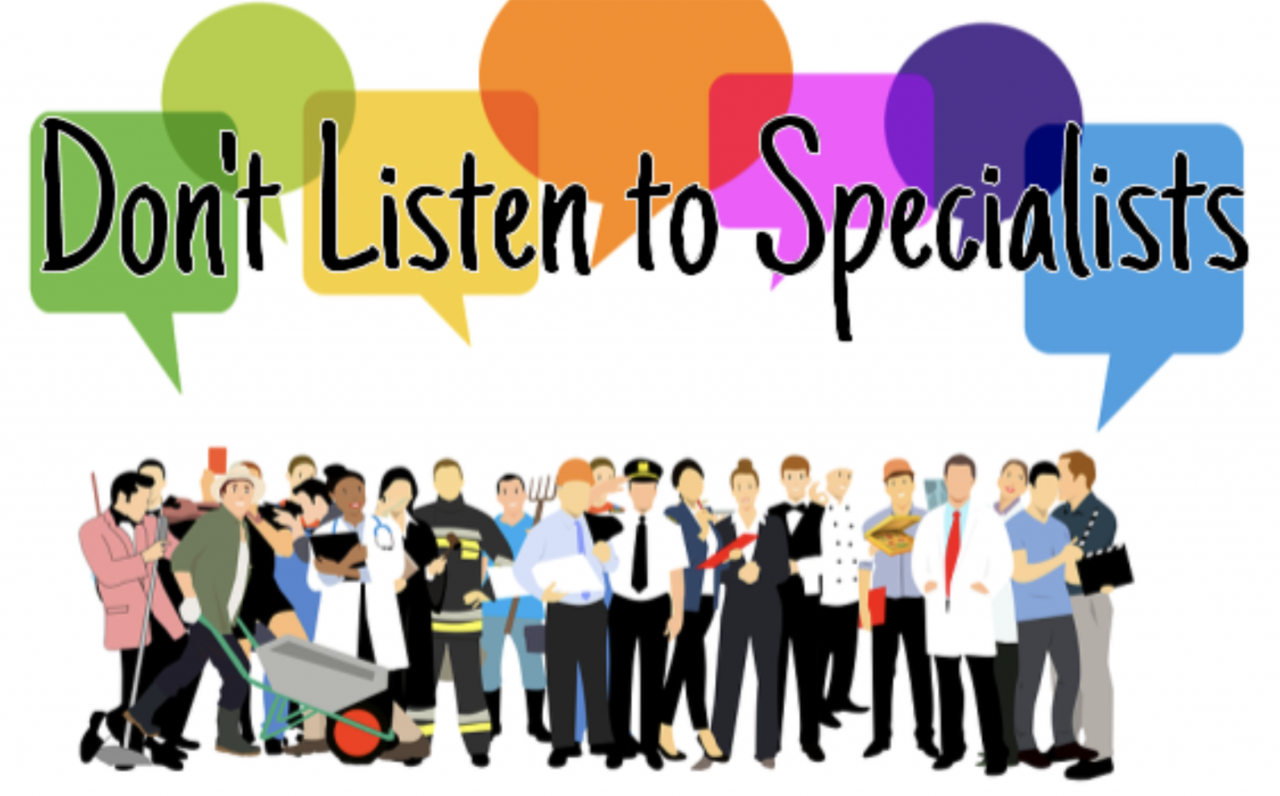This unseasonable warm weather reminded me of when our air conditioner randomly turned on in the middle of last year’s winter. I am no HVAC professional, but even I knew we had a problem, so I did what every self-respecting millennial does:
I Googled it.
Because I didn’t really know what I was searching for, it took forever and didn’t yield results. I called a specialist from our thermostat hotline. The specialist asked for product information and had us perform some activities on our device. Something truly surprising happened:
Specialist: Go outside to your air conditioner condenser.
Me: Okay.
Specialist: Now unplug it.
Me: Okay, it's unplugged. What now?
Specialist: Is it still running?
Me: No.
Specialist: Excellent. Is there anything else we can do for you today?
Me: … Are you serious?!
The surprising part, in case you were wondering, was that I wasn’t speaking to a specialist, despite the title. I was speaking to someone who was prompted by a computer program, absent of any understanding of our house, the root of the problem, or what “problem solved” looked like.
So we called a real specialist, someone with 30+ years in the HVAC industry, who had built trust with us and our community. Several questions and some fancy equipment later, he figured out the root of the problem, explained our options, found us a temporary solution until the permanent one could be implemented, and taught us what to do if it ever happened again. I could have had the same fancy equipment and never figured out a fraction of what he did in 20 minutes, let alone the preventative training. That is what a real specialist does.
A good specialist is someone you listen to, who might have some special equipment and solve a problem well. A great specialist is someone you engage with, who listens to you, discusses big problems and plans for the future, and they make room for you to learn alongside them. They are someone who sits with the table as a "knowledgeable other" on your very knowledgeable team and leaves it better than they found it.
The next time you work with a specialist (or find yourself as the specialist) consider these questions:
PATINS has a list of specialists ready to engage with you, as well as a process just for students who struggle to communicate and may benefit from Augmentative and Alternative Communication. We look forward to the conversation!
I Googled it.
Because I didn’t really know what I was searching for, it took forever and didn’t yield results. I called a specialist from our thermostat hotline. The specialist asked for product information and had us perform some activities on our device. Something truly surprising happened:
Specialist: Go outside to your air conditioner condenser.
Me: Okay.
Specialist: Now unplug it.
Me: Okay, it's unplugged. What now?
Specialist: Is it still running?
Me: No.
Specialist: Excellent. Is there anything else we can do for you today?
Me: … Are you serious?!
The surprising part, in case you were wondering, was that I wasn’t speaking to a specialist, despite the title. I was speaking to someone who was prompted by a computer program, absent of any understanding of our house, the root of the problem, or what “problem solved” looked like.
So we called a real specialist, someone with 30+ years in the HVAC industry, who had built trust with us and our community. Several questions and some fancy equipment later, he figured out the root of the problem, explained our options, found us a temporary solution until the permanent one could be implemented, and taught us what to do if it ever happened again. I could have had the same fancy equipment and never figured out a fraction of what he did in 20 minutes, let alone the preventative training. That is what a real specialist does.
A good specialist is someone you listen to, who might have some special equipment and solve a problem well. A great specialist is someone you engage with, who listens to you, discusses big problems and plans for the future, and they make room for you to learn alongside them. They are someone who sits with the table as a "knowledgeable other" on your very knowledgeable team and leaves it better than they found it.
The next time you work with a specialist (or find yourself as the specialist) consider these questions:
- How do you gather and use the lived experiences of the student and knowledge of the family and staff who know their roles and the student best?
- What do you see as the root of the problem or barrier we identified? (Hint: if they say it’s the student, find another specialist)
- How can our team ensure we are on the right track when the specialist isn’t here? How do we reach additional help if we need it next week? In a year? In 10 years?
- When was the last time you had professional development in this area? What did you learn? How does it apply here?
- How can we identify goals for our student and team?
PATINS has a list of specialists ready to engage with you, as well as a process just for students who struggle to communicate and may benefit from Augmentative and Alternative Communication. We look forward to the conversation!


